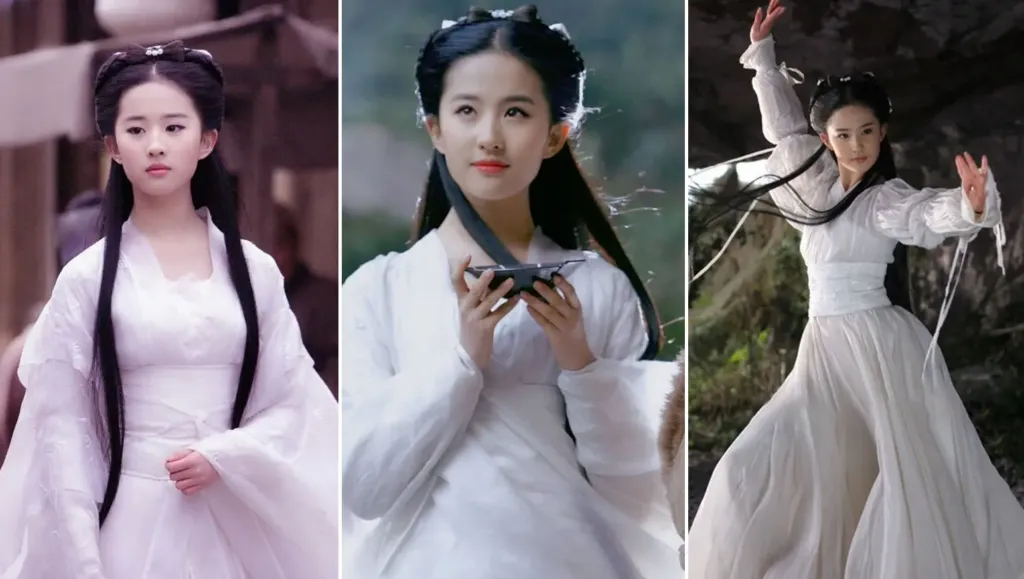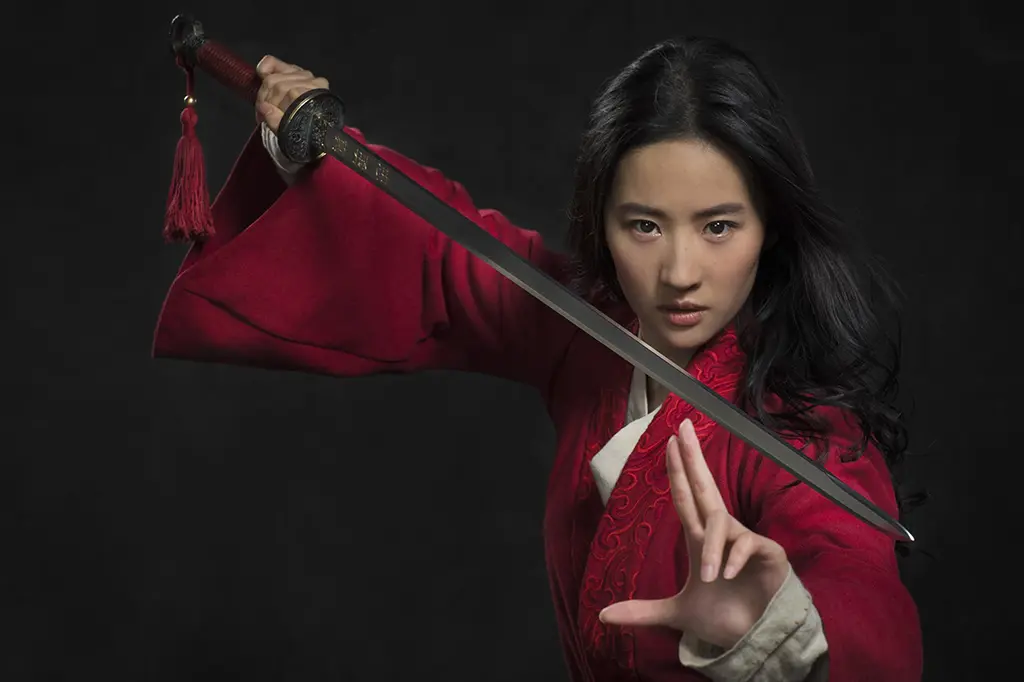Liu Yifei remains an irreplaceable face in Chinese period dramas—even if her U.S. citizenship once sparked heated debate.
Back in the early 2000s, her roles as Xiaolongnü, Wang Yuyan, and Zhao Ling’er became instant classics. Clips of her in flowing robes, soft lighting, and stoic expressions have been replayed endlessly on Chinese television and streaming platforms. While many of her peers went for louder performances or modern reinterpretations of traditional characters, Liu stuck to an opposite route: quiet, restrained, and emotionally neutral. That style—still, composed, and almost meditative—fit perfectly with the archetype of the “ideal heroine” in both Jin Yong’s wuxia universe and the mythic imagery shaping early 21st-century Chinese pop culture.

Her period-drama image isn’t just familiar—it’s practically the blueprint. In an era where remake after remake gets dragged for being shallow or lacking the “ancient soul,” Liu Yifei remains the gold standard. When viewers today talk about beauty in historical dramas, it’s not about fame or social media buzz—it’s about that specific “classical aura.” And Liu has it in spades: her calm gaze, precise movements, and carefully measured silence create a feeling that she’s not fully grounded in reality, yet somehow still present.
Even though many standout actresses emerged during the same era—Athena Chu with her graceful beauty, Cheung Man with her regal aura, and Brigitte Lin in her iconic, androgynous swordswoman roles—most of them didn’t maintain a consistent image in historical dramas. It wasn’t due to a lack of charm or fame, but rather the absence of a distinctly recognizable face that could define the visual language of the genre the way Liu Yifei’s did.
The nickname “goddess of period dramas” has followed her since long before social media stats or fandom metrics existed. She’s never needed reality shows or a rebranding campaign to stay relevant. Her staying power comes from how deeply those roles have burned into the public’s memory—rerun after rerun, platform after platform.
Of course, her U.S. citizenship has been a sore spot at times, especially during moments when nationalism bubbles up in Chinese media discourse. Things got particularly tense when she was cast in Mulan, the Hollywood take on a Chinese folk legend. Suddenly, her identity became a Rorschach test: was she “representing China” or “performing China”? But no matter how loud the back-and-forth got, one thing stayed steady—between 2008 and 2024, Liu consistently ranked at the top in polls from Sina, Douban, iQIYI, and Tencent Video. Her visual imprint has outlasted the noise.

Part of it is just that her face hits different. That cool, aristocratic beauty—sharp features, regal posture, eyes that say everything by saying nothing—feels tailor-made for princess roles. Her early career happened to line up perfectly with the explosion of Jin Yong adaptations on TV. As a result, her image became locked in as the definitive look of the era’s historical aesthetic. That look got repeated so many times, it basically etched itself into the collective brain of a whole generation.
Sure, plenty of other actresses have been beautiful in period dramas—and plenty are famous. But when people start name-dropping iconic “ancient beauty” types, Liu Yifei is still the first out of the gate. She doesn’t have to flex, doesn’t have to chase clout—her legacy is already deep in the DNA of the genre. And honestly? That’s some main-character energy, no cap.
Let’s be real: in a landscape where fame is often a hustle, Liu Yifei just is—effortless, chill, and still, somehow, untouchable. That’s the kind of longevity you can’t fake, and you definitely can’t buy. Total queen behavior.